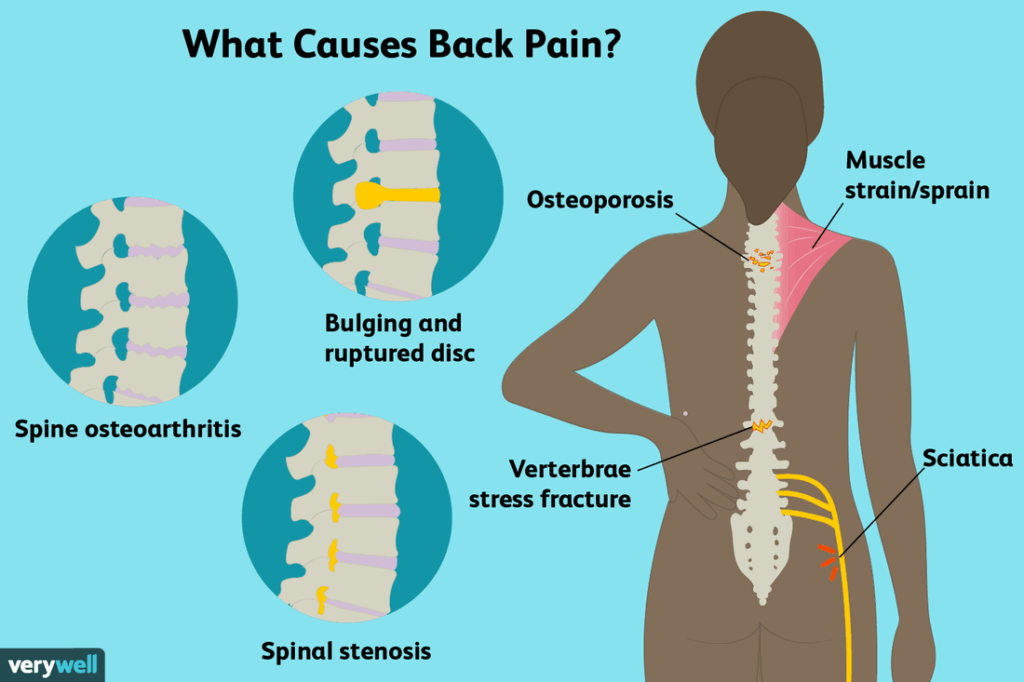
Back pain is one of the most common reasons people seek medical attention. In fact, it’s estimated that up to 80% of adults will experience back pain at some point in their lives. For many, the diagnosis given is “non-specific back pain”—but what does that actually mean?
At The Physiotherapists, we support clients across Brighton, Hove, Portslade, Shoreham, Peacehaven, and Lewes with expert, at home physiotherapy care. In this blog, we explain what non-specific back pain is, why it’s so common, why it can feel so frustrating, and how physiotherapy offers a way forward—even when scans and medication fall short.
What Is Non-Specific Back Pain?
Non-specific back pain refers to discomfort in the back that cannot be linked to a clear, identifiable cause such as a fracture, disc herniation, or infection. Instead, the pain is likely related to:
- Muscle tension or spasm
- Joint or ligament strain
- Poor posture or sedentary lifestyle
- Deconditioning or weakness
- Stress or emotional tension
It is called “non-specific” because no single structure can be blamed, and in most cases, MRI or X-ray results come back as ‘normal’ or show unrelated changes.
The Problem With Imaging
One of the biggest frustrations clients report is being sent for an MRI, only to be told there’s “nothing wrong”—yet they’re still in pain.
While MRI scans can identify disc bulges, joint degeneration, or other anatomical variations, these findings are also present in pain-free individuals. Research shows that:
- Over 50% of people over 40 have disc degeneration on MRI—with no symptoms.
- Many structural changes seen on scans are just part of normal ageing.
So while imaging can rule out serious issues, it does not always correlate with pain. This is why a thorough physical assessment—like the kind we perform in-home at The Physiotherapists—is so crucial.
See this NHS guidance on managing low back pain
Why It’s So Frustrating
Non-specific back pain can feel invalidating. You’re in pain, but tests are “clear.” Your GP may have few options beyond painkillers or general advice.
You may have heard things like:
- “It’s just wear and tear.”
- “Take these and come back in a few weeks.”
- “It will settle on its own.”
While sometimes true, this approach can feel dismissive—especially when pain starts to affect your work, sleep, social life, or ability to exercise. You may feel stuck or unheard.
At The Physiotherapists, we take a different approach. We listen, assess, and create a personalised plan that addresses your unique physical, emotional, and lifestyle factors.
The Role of Physiotherapy
Physiotherapy is one of the most effective treatments for non-specific back pain. NICE (National Institute for Health and Care Excellence) guidelines recommend movement and exercise-based therapy as the first line of treatment.
Here’s how physiotherapy can help:
1. Individual Assessment
We look at how you move, your posture, muscle imbalances, and how pain impacts your daily life.
2. Personalised Exercise Plan
No cookie-cutter sheets here. Your programme is designed around your body, your goals, and your current ability.
3. Manual Therapy (if appropriate)
Hands-on techniques may help reduce muscle tension, improve mobility, or relieve discomfort.
4. Education
We explain what’s happening in your body, why you’re feeling pain, and what you can do about it. Understanding leads to less fear—and less pain.
5. Lifestyle Support
We work with your habits, routines, and environment to reduce strain and support healing.
Common Triggers We Address
- Prolonged sitting (working from an office or home)
- Poor desk ergonomics
- Muscle imbalances from repetitive movement
- Weak core or glutes
- Post-injury deconditioning
- Stress-related tension (especially in the upper back)
You’re Not Alone—And It’s Not “All in Your Head”
Pain is complex. Your experience is valid, even if imaging doesn’t show a clear cause. Modern pain science shows that pain is influenced by:
- Physical stress (overuse or underuse)
- Emotional stress (anxiety, depression)
- Lifestyle (sleep, activity levels, diet)
- Beliefs (fear of movement, previous experiences)
This is why we use a biopsychosocial approach—considering your whole life, not just your back.
Why At Home Physio Works So Well
In-home physiotherapy gives us a unique advantage:
- We see how you move in your real environment
- We can tailor exercises to your space and needs
- You avoid waiting lists and travel discomfort
- You receive full attention and privacy
It’s especially helpful if your pain makes it hard to travel or if you’ve had dismissive experiences in traditional clinics.
NHS Waits Are Long—And That Matters
In Brighton and surrounding areas, NHS wait times for musculoskeletal physio can be up to 34 weeks. That’s a long time to live in pain or feel like you’re in limbo.
Our private service allows you to begin rehab within days. We help you take back control and start improving now—not months from now.
Evidence-Based, Person-Focused
We stay up-to-date with the latest guidelines and research. Our methods are based on UK physiotherapy standards, including:
Call to Action: Let’s Get You Moving Again
If you’re living with back pain and feeling frustrated by a lack of answers, we’re here to help. At The Physiotherapists, we come to you—ready to listen, assess, and guide your recovery.
Book an appointment now at www.thephysiotherapists.co.uk
Or read more in our related blogs:
- Avoid Long NHS Waits: Access Prompt Physiotherapy in Brighton
- Physio at Home – Improve Your Recovery Time, with More Convenience
Brighton’s local, home physiotherapy service. Personalised care, expert support—right where you need it most.

